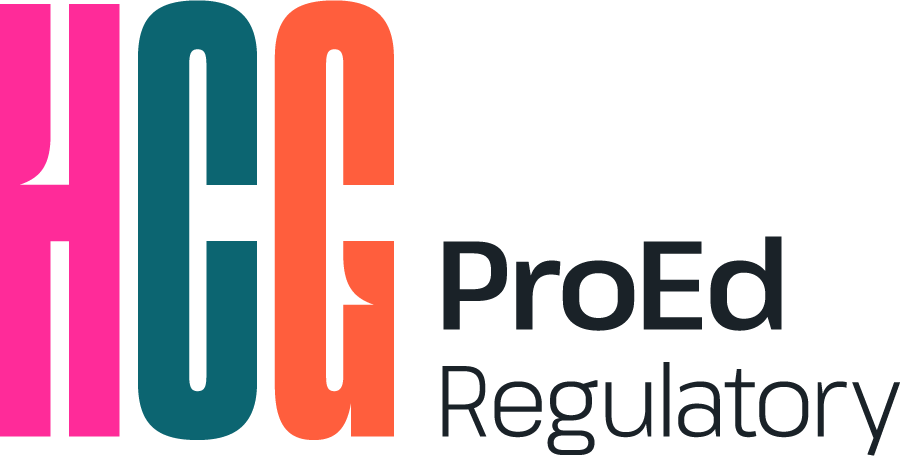Neurology Takes a Page Out of the Oncology Playbook of FDA Accelerated Approvals
The field of neurology is experiencing a significant upswing in innovative therapeutic development, propelled by advances in genetics, neuroimaging techniques, and biomarker research. However, neurological diseases are inherently difficult to treat, and there remains an urgent need to rapidly translate these advances into more effective treatments. It is timely then, that several recent drug approvals in neurology have benefited from FDA’s Accelerated Approval pathway— designed to expedite access to promising drugs to treat serious, life-threatening conditions with a high unmet medical need—a regulatory path most often traveled by oncology drugs.
Four recent accelerated approvals—2 for amyotrophic lateral sclerosis (ALS) and 2 for Alzheimer’s disease—appear to support a shifting regulatory approach to neurological drugs by the FDA, particularly in its willingness to deploy regulatory flexibility.
The ALS Treatment Landscape is Evolving Rapidly
On April 25, 2023, the FDA granted accelerated approval to Biogen’s Qalsody™ (tofersen), indicated to treat a rare, genetic form of ALS mediated by the superoxide dismutase 1 (SOD1) gene, referred to as SOD1-ALS. The approval was based on evidence that tofersen significantly reduced neurofilament light chain (NfL)—a marker of axonal degeneration that is elevated in the blood of many neurologic and neurodegenerative conditions—which correlated with a delay in disease progression and death. Although a failed clinical trial proved a barrier to full approval, the Peripheral and Central Nervous System Drugs Advisory Committee reviewed the data on March 22, 2023, and voted in favor of NfL’s utility as a surrogate endpoint supporting conditional approval. This marks the first instance of a blood biomarker being effectively used as a surrogate endpoint to secure accelerated approval for a neurology drug and underlines the potential benefits of incorporating NfL—and other blood biomarker measurements—into other neurology trial designs.
The FDA’s review of Amylyx’s Relyvrio™ (AMX0035)—a fixed-dose combination of sodium phenylbutyrate plus taurursodiol—was a closely watched regulatory event last year. Marginal efficacy in a phase 2 trial initially prompted the FDA to call for more data; however, they ultimately decided to review the application. Two advisory committee meetings were convened in 2022 and reached opposing outcomes. Panelists on the Peripheral and Central Nervous System Drugs Advisory Committee (PCNS) voted in favor of approving Relyvrio™, just months after voting against the drug. The committee appeared to be swayed by additional analyses of survival benefit, a more acute focus on the unmet need, the FDAs own emphasis on exercising regulatory flexibility, and the sponsors statement that it would withdraw their drug if their phase 3 confirmatory trial fails. Subsequently, the FDA granted accelerated approval of Relyvrio™ for the treatment of ALS in September 2022.
A review in JAMA of oncologic drugs approved between 2000 and 2016 revealed that oncology drugs granted accelerated approval demonstrated a median overall survival (OS) benefit of 2.4 months1. Comparing this to Amylyx’s Relyvrio, which exhibited a 4.8-month median OS benefit, illustrates both a heightened standard of approval for neurologic drugs by the FDA and its advisory committees, and a gulf in the perception of meaningful clinical benefit in the fields of oncology and neurology. Patients and caregivers will argue that the benefit of adding a few months—and vital quality-of-life improvements—to the 3- to-5-year life expectancy of a patient suffering from ALS is just as clinically meaningful as in advanced cancers.
Alzheimer’s Accelerated Approvals Signal Renewed Scrutiny of Surrogate Endpoints
One key factor contributing to the success of accelerated approvals in oncology is the use of surrogate endpoints. These are indirect measures of clinical benefit that can be assessed more quickly than traditional endpoints, like overall survival, and are reasonably likely to predict clinical benefit.
The utility of amyloid-beta protein buildup in the brain (assessed by brain imaging) as a surrogate endpoint believed to be correlated with cognitive decline in Alzheimer’s disease was greenlighted with the approval of Biogen’s Aduhelm™ (adacanumab) in June 2021—the first accelerated approval of an Alzheimer’s drug.
The FDA’s recent willingness to apply regulatory flexibility when reviewing neurology applications, as in the case of Qalsody and Aduhelm—and subsequently approve these drugs under the Accelerated Approval pathway, has resulted in a shift in the regulatory strategy being employed by sponsors. The strategy to utilize the Accelerated Approval pathway in neurology drug development programs may, in part, be driven by (1) the evolution of imaging and biomarkers that can potentially be used as surrogate endpoints, and (2) the openness of FDA to accept those surrogate endpoints.
While the use of the expedited pathway and the decision to use amyloid-beta as a surrogate endpoint reasonably likely to predict clinical benefit was surprising in the case of adacanumab, it has changed the regulatory landscape in neurology by setting precedent. Eisai and Biogen subsequently capitalized on that precedent by picking up another accelerated approval for Leqembi™ (lecanemab) for Alzheimer’s disease, and on June 9th the PCNS voted unanimously for full approval of Leqembi, based on results of the confirmatory trial.
It appears that the regulatory environment surrounding the amyloid-beta class of treatments for Alzheimer’s disease—primed by Aduhelm and Leqembi—continues to bear more fruit. In Eli Lilly’s May 3 press release, we saw the most encouraging results yet for a drug that targets amyloid beta. In a phase 3 trial of more than 1,000 people with early signs of Alzheimer’s disease, donanemab treatment resulted in a slowing of cognitive decline by 35% compared to placebo. It also resulted in 40% less decline in the ability to perform activities of daily living.
Interestingly in that trial, biomarkers were used in a relatively dynamic manner. Firstly, patients were prescreened using a predictive biomarker—plasma p-tau-181—thought to select for patients with both amyloid and tau tangle pathology (the 2 prominent pathologies in Alzheimer’s disease). Subsequently, the data revealed that those who start the trial with fewer tau tangles benefitted the most from donanemab. Incidentally, donanemab slowed (but did not stop) tangle growth, underscoring the benefit of treating earlier in the course of disease.
Secondly, the amyloid beta surrogate biomarker was used to inform clinicians on when to complete patients’ course of treatment with donanemab—by reaching a threshold of amyloid plaque clearance—a strategy that has not been employed in other Alzheimer’s disease trials testing antibodies against amyloid beta.
The National Academies of Sciences, Engineering, and Medicine (NASEM) convened a workshop in January 2023 to examine the FDA’s use of the Accelerated Approval program. There was renewed criticism of the FDAs approval of Aduhelm and a call to increase the transparency around FDA decision-making and its stance on surrogate endpoints. According to Peter Stein, director of the FDA’s Office of New Drugs, “We don’t have a simple formula or algorithm for evaluation of a potential surrogate for accelerated approval.” He went on to emphasize the limitations of using a correlation between the surrogate and established clinical outcomes that demonstrate clinical benefit.
There is clearly a need for a set of transparent standards for the utility of surrogate endpoints, both in therapeutic areas where accelerated approvals have traditionally been applied (oncology and HIV/AIDS) and in neurology. FDA guidance on surrogate endpoints is being developed. Under the Food and Drug Omnibus Reform Act of 2022 (FDORA), the FDA must issue 4 guidance documents related to accelerated approvals within 18 months of FDORA being enacted in December 2022; 2 of which will address surrogate endpoints.
As a wave of innovation continues to crash on the shores of neurological research, the interplay between novel therapeutics, surrogate endpoints, and regulatory flexibility has brought about tremendous progress in the field of neurodegenerative diseases. The FDA’s updated guidance on surrogate endpoints is likely to further accelerate the development of novel treatments based on the best available science.
References
- Ladanie A, Schmitt AM, Speich B, et al. Clinical trial evidence supporting US Food and Drug Administration approval of novel cancer therapies between 2000 and 2016. JAMA Netw Open. 2020;3(11):e2024406. doi: 10.1001/jamanetworkopen.2020.24406.
 Muzamil Saleem, PhD
Muzamil Saleem, PhD
Associate Scientific Director, HCG ProEd Regulatory
Muz is a trained neuroscientist with a diverse skillset, combining a 10-year neurology-focused research career, scientific consulting experience, and a 3-year tenure in healthcare equity research on Wall Street before joining HCG ProEd Regulatory—all supported by a passion for written and visual scientific communication. Connect with Muz on LinkedIn.

